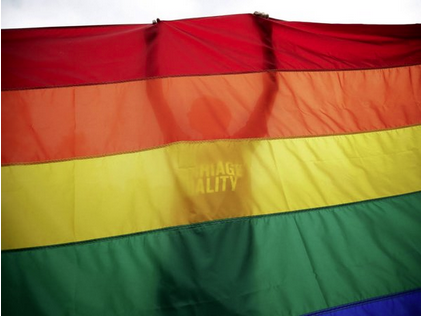![Many people today continue to fight for gay rights abroad. [AP/Matt Slocum]](http://www.jstudentboard.com/reporter/wp-content/uploads/2015/02/Screen-Shot-2015-02-02-at-6.13.27-PM-300x225.png)
Many people today continue to fight for gay rights abroad.
[AP/Matt Slocum]
On one hand, Vietnam, located in a region where gay rights are generally not recognized, recently had a new marriage law come into effect on New Years’ Day. This new law removes any previous bans on same-sex marriage and abolishes fines that had been imposed on such weddings in 2013. However, the government does not legally recognize the marriages and won’t provide legal protections in cases of disputes.
Yet, this new bill will positively affect the 1.65 million LGBT citizens ages 15 to 59 currently living in Vietnam, which has a population of about 90 million, and help increase the viability of Vietnam to gay travelers.
“It is getting out that Vietnam is a more friendly place toward gay people,” John Goss, director of Utopia Asia, a gay resources website based in Bangkok, said in a recent interview with Bloomberg News. “Gays in Vietnam are certainly becoming more open. It has not ruffled any feathers as it might in some other countries in Southeast Asia.”
Jett Costibolo, a Filipino sophomore at Loyola High, said in an interview with JSR that he considers this recent move by Vietnam as “surprising” and didn’t really expect such a “bold and radical move” from the country.
“While I’m not Vietnamese,” he said when explaining his surprise, “my home country is pretty close to theirs, so I think I can safely say they’re pretty similar in terms of what they believe.”
Costibolo continued, “And while the Philippines aren’t exactly totally anti-gay, it isn’t a paradise for them either…. I’m pretty sure most of my family members and friends that I know back home are okay with gay people, but I don’t know for sure because it isn’t really something that’s openly shared and talked about, unlike here in the US… so to hear of Vietnam doing this both surprises me and gives me a little hope that maybe one day the Philippines will have such a law.”
However, things aren’t going as well for equality advocates in Russia, where numerous laws have been passed in recent years aimed at limiting the outreach and rights of LGBT activists and gay people.
In fact, Russia’s attitude towards the LGBT community has been so restrictive that the European section of the International Lesbian, Gay, Bisexual, Trans and Intersex Association has rated Russia as the least protective country in Europe for LGBT citizens.
The most recent restrictive law, which came into effect in late December last year, lists an array of health conditions that can disqualify someone from getting behind the wheel. Aimed at reducing Russia’s high number of traffic deaths, the law allows officials to deny someone a driver’s license if they have been diagnosed as having “certain gender identity disorders, disorders of sexual preference and psychological and behavioral disorders associated with sexual development and orientation.”
Many pro-LGBT activists and organizations have protested this new ruling.
“Banning people from driving based on their gender identity or expression is ridiculous and just another example of the Russian regime’s methodical rollback of basic human rights for its citizens,” said Human Rights First’s Shawn Gaylord in a recent press release. “This provision… leaves the door open for increased harassment, persecution, and discrimination of transgender people by Russian authorities.”
It is crucial to remember that just because for some the light seems brighter, for others the light is still dim. At this crucial stage, when victory seems closer than ever before, giving up now and remaining silent will only mean further darkness for those whose counterparts in the United States are experiencing expanded equality. And that is simply intolerable.

